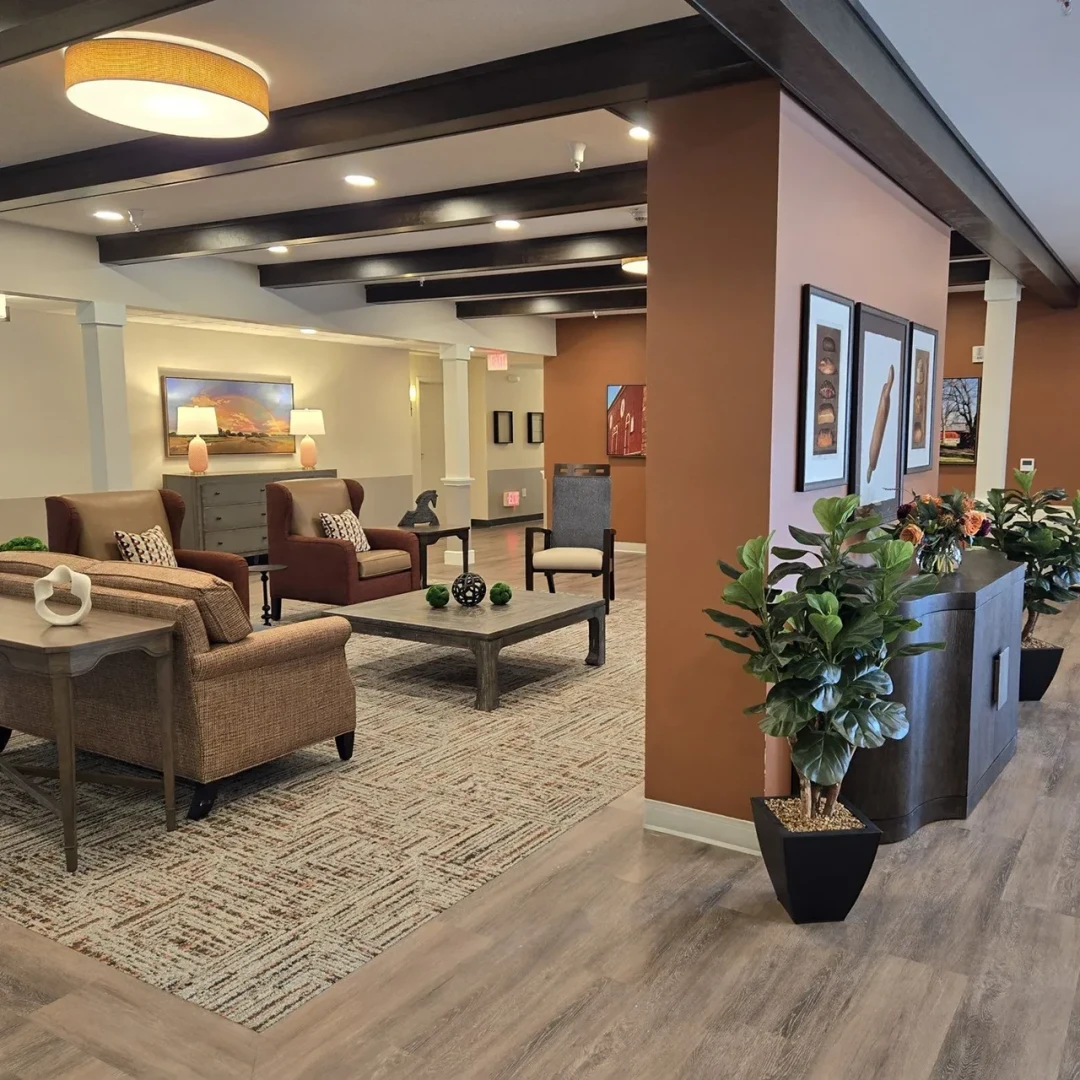Personal Care Is The Quiet Support That Keeps Life in Motion
Published on October 29, 2025
It was a crisp morning in Sinking Spring when Susan helped her mom button her cardigan before they headed to breakfast. Her mom still insists on making her own tea, though her hands tremble a little more than they used to. These small moments — the push and pull between independence and needing help — are where families often begin to wonder what kind of support makes sense next.
For many, the right answer isn't medical care or a nursing home. It's personal care. It's a steady, non-clinical kind of support that helps older adults stay safe, comfortable, and involved in daily life without losing their sense of self and personal dignity.
At The Residence at Village Green in Sinking Spring, personal care is built around that balance: help when it's needed, freedom when it's possible, and respect always.
What Exactly Is Personal Care?
Personal care refers to non-medical assistance with daily routines — what professionals call the Activities of Daily Living (ADLs) and the Instrumental Activities of Daily Living (IADLs). These include bathing, dressing, mobility, meal preparation, and managing medications.
Unlike home health care, which involves skilled medical professionals, personal care is supportive rather than clinical. It focuses on comfort, safety, and preserving independence.
A Personal Care Assistant (PCA) or aide helps bridge the gap between full independence and skilled nursing. That support might look like a morning routine made easier, a walk to the dining room made safer, or a meal enjoyed with dignity instead of difficulty.
The National Institute on Aging notes that consistent, respectful support with everyday tasks can dramatically reduce falls, stress, and depression in older adults. It's a quiet but powerful form of care.
How Does Personal Care Help Maintain Independence?
Families sometimes fear that asking for help means giving up independence. In reality, the opposite is often true.
When basic tasks — like bathing or cooking — become exhausting, older adults can lose confidence and withdraw from social life. With personal care, those energy-draining moments are replaced with structure and safety, allowing residents to focus on what gives life meaning: time with friends, hobbies, and connection.
At Village Green, caregivers work with residents to design care plans that fit their natural routines. Some may need just a bit of morning help; others benefit from all-day assistance. The goal is the same — support the person, not just the task.
Even minor adjustments, like assistance getting ready for a visit from family, can restore a sense of pride. That's why personal care is often described as the bridge between independence and comfort, not the end of either.
What Services Are Included in Personal Care?
Personal care is customized for each resident, but it usually includes:
Personal hygiene and grooming: Help with bathing, shaving, and dental care.
Dressing: Assistance choosing and putting on clothing that's both comfortable and appropriate.
Mobility: Support with walking, transferring, and fall prevention.
Meals and nutrition: Preparation and help with eating to ensure good nutrition and hydration.
Medication reminders: Gentle prompts to take medications on schedule (without administering).
Light housekeeping: Laundry, linens, and tidying living spaces to maintain safety and calm.
For a deeper look at how ADLs and IADLs are defined and measured, the U.S. Department of Health & Human Services offers a clear, family-friendly overview.
How Is Personal Care Different from Assisted Living or Home Health?
It's easy to confuse these terms, mainly because each state defines them slightly differently. In Pennsylvania, a personal care home is a licensed setting that provides 24-hour supervision and assistance with ADLs and IADLs — similar to what many states call assisted living.
The main difference lies in the medical scope. Personal care focuses on non-medical support; assisted living may include limited health services, such as medication administration by licensed staff.
You can find Pennsylvania's complete definitions and regulatory guidance through the Department of Human Services Personal Care Home Directory, which lists licensed providers across the state.
For families exploring options, the distinction matters less than the environment itself. What truly determines fit is whether your loved one's needs — both practical and emotional — are being met in a way that feels natural and respectful.
What Does Quality Personal Care Feel Like?
At Village Green, it's the small details that define the experience. A caregiver notices that a resident's favorite sweater is always chosen first. A staff member who remembers how a mother takes her tea. The consistent reassurance that help is nearby, but never intrusive.
Those everyday gestures build trust and calm — two things families can't measure but feel immediately during visits.
Personal care doesn't erase independence; it extends it. It gives older adults the time and confidence to live with rhythm and purpose, and it provides adult children something equally valuable: peace of mind.
When Is It Time to Consider Personal Care?
Every family reaches that moment differently. It might come after a fall, a hospital stay, or a quiet realization that your loved one's world has become smaller. If you're seeing signs of fatigue, confusion about medication, skipped meals, or a decline in housekeeping, those may be indicators that it's time to explore supportive options.
The Family Caregiver Alliance provides helpful tools for assessing care needs and planning next steps. Their checklists can guide conversations that are otherwise hard to begin.
In Sinking Spring and Berks County, visiting a community like The Residence at Village Green can offer a firsthand look at what balanced, compassionate support looks like. A place where life feels easier, not smaller.

We're excited to share more about our community.
Submit the form and we’ll get in touch shortly.
The Residence at Village Greens
4400 Haines St.
Sinking Spring, PA 19608
484-709-2561